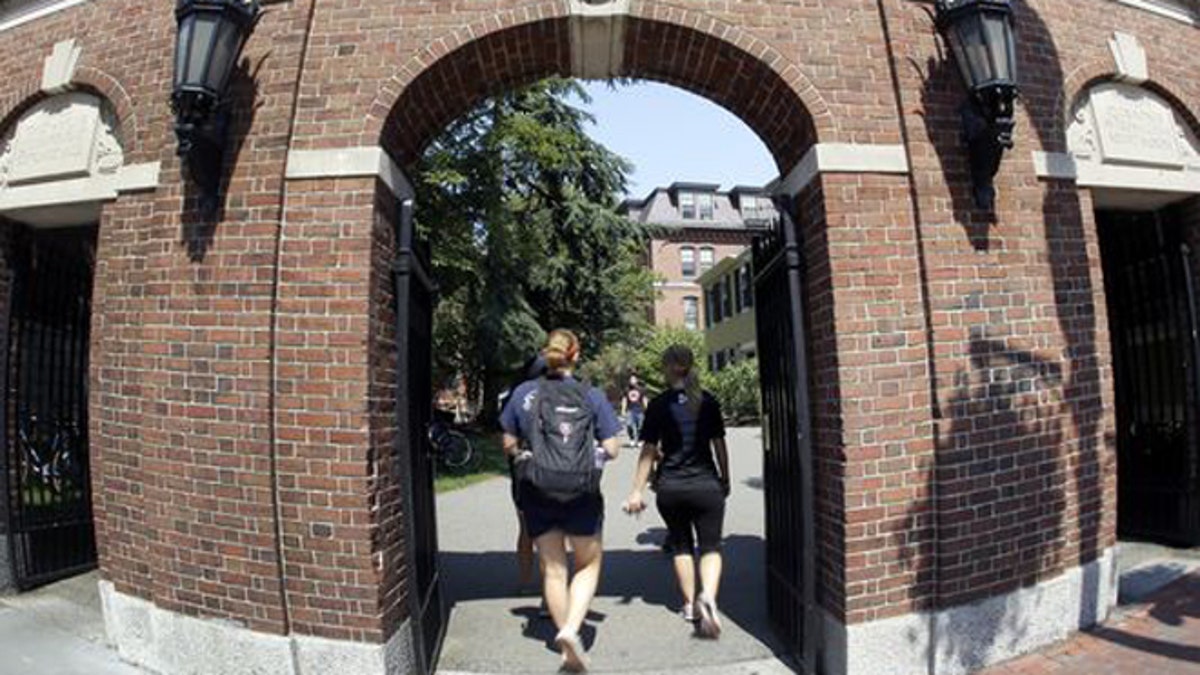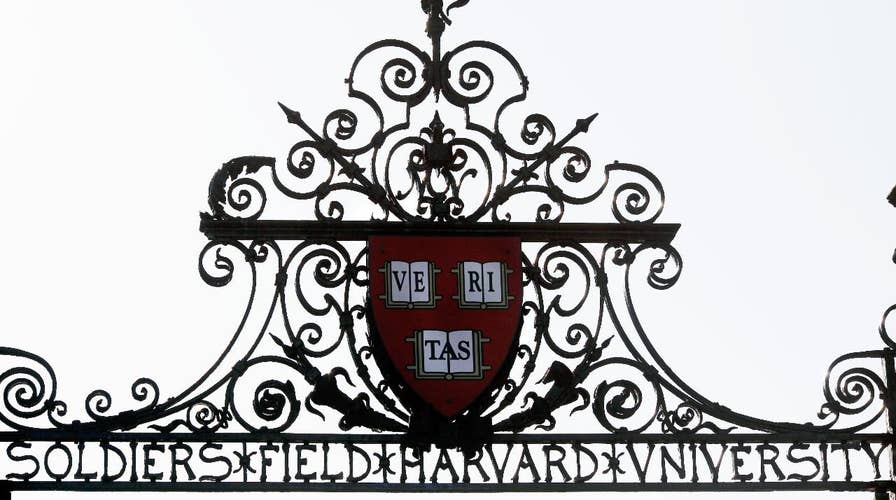Inside the Asian discrimination lawsuit against Harvard
President of Students for Fair Admissions explains why they have filed suit against Harvard College for its admissions policies regarding Asian students. #Tucker
Female clubs caught up in Harvard's 2016 ban on single-sex organizations may get a grace period or be allowed to define themselves as "gender-focused," due to murky deadlines and conflicting information -- but male clubs who defy the order are being hit with sanctions.
Beginning this semester, members of single-sex final clubs and Greek organizations will be blacklisted from Rhodes and Marshall scholarships and banned from leadership positions in campus organizations and athletics in an effort to foster “inclusion” and “address deeply rooted gender attitudes.”
The single-sex, off-campus organizations came under fire after Harvard determined all-male groups created dangerous environments. The policy change was announced in May 2016, even though these organizations haven’t been recognized or received benefits from the university since 1984.
The Harvard Corporation made the final call in a December decision. Though University President Drew Faust is stepping down later this year, her successor will not have any input on the sanctions.
The Dean of the College, Rakesh Khurana, repeatedly declined to tell the Harvard Crimson when the College will release a final plan to enforce the penalties, which he had previously stated would be distributed by the beginning of this semester.
In the meantime, it remains unclear how the Office of Student Life plans to implement the recommendations still under consideration: enforcing sanctions on all-male groups and a proposed “bridge program” that would give all-female groups a grace period of at least three years in which to transition to gender neutral organizations.

Students walking on Harvard University's campus in Cambridge, Massachusetts. (AP/Elise Amendola)
Harvard spokeswoman Rachael Dane told Fox News each case will be considered separately, regardless of whether the organization's membership is male or female.
“Harvard College will look at the individual circumstances of each currently unrecognized single-gender social organization, irrespective of gender, and provide assistance to organizations who request assistance to help them make the transition to a more inclusive organization,” Dane said.
The Harvard Crimson reported that, following the sanctions, sorority rush numbers dropped by more than half, but some groups have nevertheless started going gender neutral. Most notably, Kappa Kappa Gamma, now The Fleur-de-Lis, was the first sorority to stop being single-sex after the 2016 ban. The sorority says it is now “committed to empowering female-identifying persons,” according to the club’s press release.
The Fly Club starting taking legal action in 2016, but sororities Alpha Phi, Delta Gamma and Kappa Alpha announced in a joint statement they would continue with all-female recruiting: “While Harvard's sanctions claim to support women's right to make their own decisions, these sanctions actually force women to choose between the opportunity to have supportive, empowering women-only spaces and external leadership opportunities."
Critics of the policy, such as the Foundation for Individual Rights in Education, a nonprofit organization dedicated to protecting civil liberties and First Amendment rights on campus, argue Harvard is violating students’ freedom of assembly.
“Harvard should reconsider imposing this blacklist and grant students the freedom of association it promises them,” Will Creeley, FIRE’s Vice President of Legal and Public Advocacy, told Fox News. “If this is good policy, it should be a good policy for all students, and no grace period should be needed."


